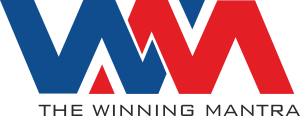A leading business school, renowned for its innovative approach to management education, engaged The Winning Mantra in 2007 to design and facilitate the implementation of a competency-based interviewing process for assessing students seeking admission to its MBA program. The process was successfully implemented and periodically refined by the institute until 2023. However, as the dynamic business landscape became increasingly technology-driven and competitive, the institute recognized the need for a comprehensive review of its interviewing process.
Objective:
The primary objective of the intervention was to review and revise the current competency assessment manual for admission, ensuring alignment with the institute’s vision and mission and the VUCA (Volatile, Uncertain, Complex, and Ambiguous) business environment in an increasing digital world.
Scope:
The project involved a thorough analysis of the existing competencies, suggesting appropriate modifications, and recommending new competencies to better suit the evolving business landscape. The scope included the identification of related traits for each competency and the development of interview questions to enable a comprehensive assessment of the suggested competencies. An important component of the project was the creation of nearly 100 mini-cases, the analysis of which would be used by the interviewers to assess the candidates’ competencies.
Review Process:
The Winning Mantra mobilized a project team of industry veterans with extensive experience in HR, marketing, operations, IT, and finance. These experts not only interviewed the institute’s faculty and management to understand their expectations but also engaged with various recruiters and HR heads from different industries to gain a deeper understanding of the evolving business landscape. After careful consideration, the project team recommended four competencies aligned with the institute’s vision, mission, and the existing and emerging business landscape. The team also developed a set of related traits and a compendium of interview questions for each competency. Additionally, a set of approximately 25 mini-cases was drafted for each competency, based on relatable situations that students could easily connect with, even without prior work experience. Each case was accompanied by three questions with increasing levels of difficulty, allowing for a comprehensive evaluation of the candidates’ abilities.
Outcome:
The revamped competency assessment process, after detailed deliberations with the interviewers and the faculty, was accepted by the institute with minimal modifications and successfully implemented during the selection of students in 2024.
The enhanced competency-based interviewing process has significantly improved the institute’s ability to identify candidates who possess the necessary skills and mindset to thrive in today’s competitive business environment.








